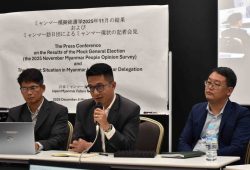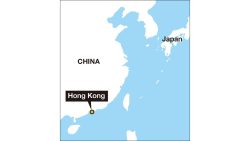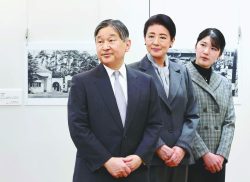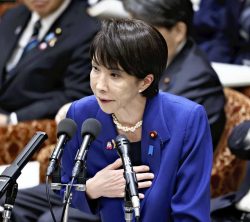13:43 JST, November 30, 2022
The world’s nations are fighting an intense battle for the best workers, and Singapore has yet again been ranked the second-best country to find them.
The country comes just behind Switzerland but ahead of 131 countries, according to the Global Talent Competitiveness Index 2022, which was published this month.
It is the only Asian state to make the European-dominated top 20 in the list.
The report, published by business school Insead and Washington-based Portulans Institute, is sponsored by the Temasek-linked Human Capital Leadership Institute for this latest edition.
The 133 countries rated own 98% of the world’s economic output and account for more than 93% of its population, the authors wrote.
They added that they aim to help policymakers, investors and recruiters make sense of labor trends from a global perspective.
Singapore has clinched second place every year since the index’s first edition in 2013, except in 2020, when it slipped one spot.
Switzerland hogged first place from the start, and the United States had been the other podium companion since 2017 until this year, when it got nudged down by Denmark, which takes third place.
The study also carries a city ranking, where Singapore ranks sixth, behind American cities San Francisco, Boston, Seattle and Switzerland’s Zurich and Lausanne. Again, it is the only Asian city to be in the top 20.
Do such rankings have any practical impact? Yes, said Mr. Helmi Yusoff from global consultancy Mercer.
“While studies like these are broad, they offer useful insights to global workers who are looking to relocate to another country,” he said.
This year’s 336-page electronic volume draws on 69 macroeconomic and country-level variables, and rates how countries attract overseas talent and help local workers with regulatory and business environments, as well as how states groom workers through education and training, and retain them with living and sustainability practices.
The impact these efforts have on vocational and technical workers, as well as professional and managerial workers, is collated.
Singapore topped the world for highly skilled workers, and ranked among the world’s five best on every aspect — except one: It took the 36th spot for retaining talent.
The report’s co-editor and a distinguished fellow at Insead, Dr. Bruno Lanvin, said: “Talent retention includes both the ability to attract talent from abroad and to offer sufficient opportunities for locally born talent to stay or return home after studying or working abroad. In this respect, Singapore suffers from the small size of its domestic market.”
Ms. Lauren Huntington, employee experience solution strategist at Qualtrics, said the firm’s findings consistently showed that less than one in three workers here is satisfied or fully satisfied with his workplace experience.
“When you consider it can cost an organization six to nine months of an employee’s salary to replace them — which is likely to be even higher for international workers — and the impact of losing high performers, the need for employers to take action to retain their best talent is even greater, especially as the country works to strengthen its position as a key hub for businesses across Asia,” she said.
Mr. Yusoff said organizations can work on getting what workers really want. “According to the 2022 Mercer’s Global Talent Trends Report, six in 10 employees would join or stay with an organization only if they can work flexibly or remotely,” he said.
However, talent retention is not a blunt strategy. Mr. Yusoff said: “More organizations are targeting to retain employees who are mission-critical … instead of looking to retain all talent across the board.”
This year’s publication highlights the rise of China. The Asian giant has moved steadily up from 45th place in 2019 to 36th position this year, and “is now the most talent-competitive upper-middle-income country in the world,” it said.
Dr. Lanvin said China has been adept at matching its workforce skills with market demand, such as honing an education system that answers to the needs of the economy.
He said: “Especially impressive has been the ever higher quality of its secondary and tertiary education.”
Indonesia seems ready to take a similar path, he added.
The report said the talent gap between rich and poor economies continues to widen, and will be amplified by factors such as the Russia-Ukraine war and the pandemic.
“Three in five workers live in countries where labor incomes have not returned to pre-pandemic levels, the gender gap in hours worked has widened, and women in informal employment have been most affected; and the impact of COVID-19 is stronger and lasting longer in poorer economies,” said the report.
“COVID-19 taught us many important lessons in this regard. One of them is that in times of crisis, the weakest are the ones who suffer most,” it added.
Geopolitical tensions have brought forth nationalistic and protectionist attitudes, Dr. Lanvin said, and smaller economies have the most to lose from a collapse of trade, investment and talent flows.
He added that one challenge was to define what tomorrow’s jobs would be amid a world of uncertainties, and another, to involve younger generations in future workforce policies and strategies.
"World" POPULAR ARTICLE
-

8 Japanese Nationals Stranded on Indonesia’s Sumatra Island
-

U.S. Senate Resolution Backs Japan, Condemns China’s Pressure
-

Mozambican Cooking Class Held in Matsuyama, Ehime Pref.; Participants Don Aprons, Bandanas Made from Traditional Mozambique Fabric
-

China to Impose Sanctions on Shigeru Iwasaki, Former Head of Japan’s Self-Defense Forces, Who Serves as Adviser to Taiwan’s Executive Branch
-

South Korea’s Top Court Dismisses Nippon Steel Appeal in Lawsuit over Requisitioned Worker
JN ACCESS RANKING
-

Tokyo Economic Security Forum to Hold Inaugural Meeting Amid Tense Global Environment
-

Keidanren Chairman Yoshinobu Tsutsui Visits Kashiwazaki-Kariwa Nuclear Power Plant; Inspects New Emergency Safety System
-

Imports of Rare Earths from China Facing Delays, May Be Caused by Deterioration of Japan-China Relations
-

University of Tokyo Professor Discusses Japanese Economic Security in Interview Ahead of Forum
-

Japan Pulls out of Vietnam Nuclear Project, Complicating Hanoi’s Power Plans






















